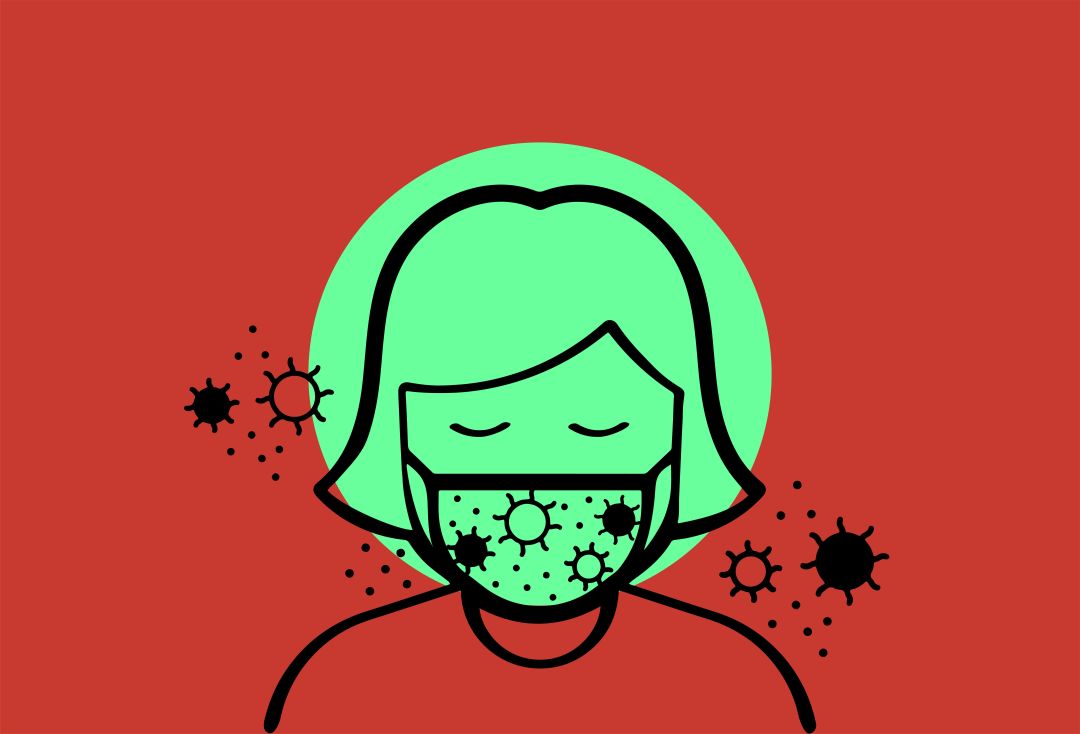Can Wearing a Mask Relieve Seasonal Allergies?

Image: Kari Perrin
January through April in Southwest Florida is peak tree pollen season, with trees like oaks flowering more than ever—and producing clouds of yellow pollen. This year seems worse than most, with yellow dust currently covering our cars, sidewalks and homes. Our area also gets more rainfall than usual in spring, which washes the pollen out of the air for a day or two—but with rain comes other allergens like mold.
Tree pollen is measured in particles per cubic meter of air. The average amount is about 50 pollen grains per cubic meter, but at a peak, which is in the air right now, is about 15,000 particles per cubic meter. Dr. Roger Danziger, an allergist, says these particles are microscopic, you can't usually see them, but you are walking into them all day long.
If you are someone who is polysensitized, or has multiple allergies, this time of year can be difficult. We asked Danziger and fellow allergist Dr. Jennifer Fergeson to share tips for getting relief.
Can wearing a mask help with allergies?
Potentially, yes.
"The typical cotton mask does not block the microscopic allergy particles like pollen or mold spores as well," says Danziger. "But the more restrictive masks, like KN95s might help a little more." Danziger says that the microscopic size of pollen particles floating in the air could still pass through a thin cloth mask. The thicker the fabric, the more protection potential.
Fergeson, of Windom Allergy, Asthma and Sinus in Sarasota, believes that wearing any kind of mask can reduce symptoms, along with wearing sunglasses to protect your eyes. "We've recommended mask-wearing to those who are strongly effected, even before the pandemic. We also suggest keeping the windows and doors of your home closed as much as possible," says Fergeson. "In general, if you are covering your nose, mouth and eyes, the main entrances for pollen irritation, you are reducing symptoms."
What else can provide relief?
Both Danziger and Fergeson recommend steroidal nasal sprays as the first line of defense for pollen allergies. Using sprays like Flonase or Nasocourt daily for the entirety of pollen season can relieve most symptoms. Most people experience significant relief within five to seven days of daily use. Fergeson suggests cleaning the nasal cavities with pure saline solution prior to using nasal spray, to help the steroid stick to the nasal lining more effectively. Sprays will help will runny nose, sneezing, itchy and watery eyes and post nasal drip symptoms.
What if you have more than a runny nose and itchy, watery eyes?
"Topical or oral decongestants work well for those experiencing sinus pressure, headaches and clogged ears," says Fergeson. "You should start to feel relief within minutes of use but should be used with caution due to the risk for rebound nasal congestion with excessive use."
What are the differences between Covid-19 symptoms and allergy symptoms?
"This was a big concern for people, especially when the pandemic first became widespread in our area," says Fergeson. "But the hallmark symptoms of Covid have included fever, body aches, sinus pressure and loss of taste and smell. Fever and body aches are never an allergy symptom."
Can these steroidal treatments break down your immune system?
"Many patients and parents of children have been concerned about using steroids and the effect it could have on their immune system, especially during this time," says Danziger. "But they will not break down their immune system if they are using it as prescribed."
Are there other tips for relieving allergy symptoms?
Danziger suggests checking your AC system yearly, go around your house with a flashlight to check for water damage causing mold, wash sheets and fabrics in hot water to rid of dust mites and use a dust mite-proof cover on your mattress, which can also help reduce pollen, too. Using an air filter works well, too, and changing and showering as soon as you come from outside, will help rid of pollen.
If you are unsure whether you have Covid-19, the flu, the common cold or allergies, it is always beneficial to seek the advice of a medical professional and allergy specialist.